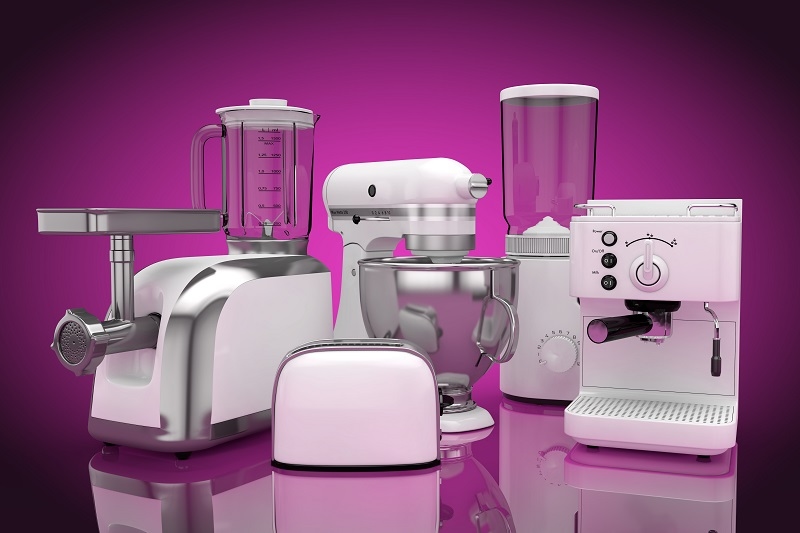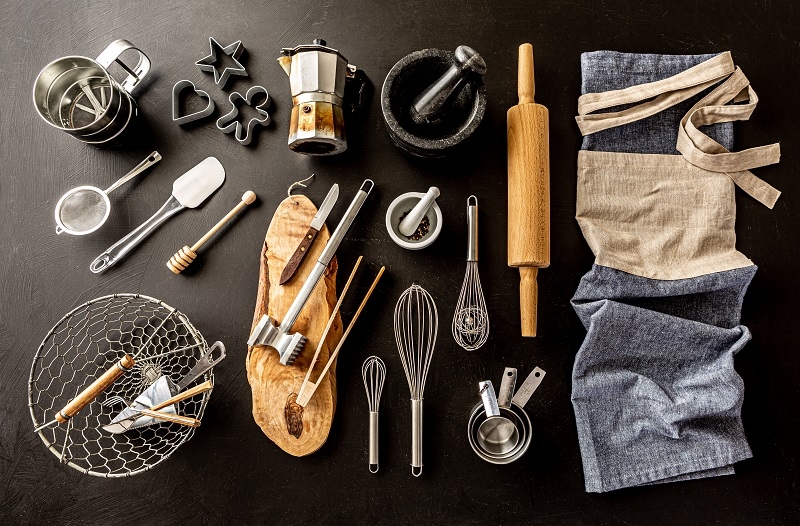
Kitchen Essentials: Must-Have Tools for Every Home Cook

When it comes to setting up your kitchen, the problem isn’t not having enough stuff. It’s usually the opposite—you end up buying too much, half of which collects dust. That’s why knowing your real kitchen essentials matters. These are the things you’ll actually use every day, the tools that make cooking easier instead of more complicated.
This guide breaks down everything from cookware to utensils, the right small appliances, smart storage ideas, and even a few cooking gadgets that are worth the counter space.
Why Kitchen Essentials Matter
Please tidy up this area. It is impossible to work healthily without a clean and organized kitchen. A good kitchen setup isn't about owning every shiny thing on the shelf. It is just getting the basics ready so that things can be cooked stress-free. Just try to make some soup without a pot or maybe chop some vegetables with a dull knife, and you will know instantly why the really basic things in the kitchen should never be compromised. Getting hold of the right cookware, utensils, and small appliances is a direct way of saving time, reducing food wastage, and also avoiding the chaos of cluttered kitchen space. A kitchen that functions well makes one want to cook all the time, which means healthier meals, less money on takeout, and a whole lot of saving.
Core Kitchen Essentials Everyone Needs
Let's keep it real; what do you actually need to cook like a normal human being and not like a professional chef with an unlimited budget?
1. Cookware You Can’t Skip
Forget the 15-piece pan sets. You only need a few solid pieces of cookware:
- Skillet (10–12 inches): Handles everything from eggs to stir-fry. Nonstick is easier for beginners.
- Saucepan (2–3 quarts): For pasta, rice, and sauces.
- Stockpot: Big enough for soups, stews, or a family-size pasta dinner.
- Baking Sheet: Roasts veggies, bakes cookies, and reheats leftovers.
- Dutch Oven: Worth it if you cook one-pot meals or bake bread.
Start small. Upgrade only if you feel the need.
2. Utensils That Actually Get Used
Your drawer doesn’t need to overflow with gadgets. These are the utensils to stick to:
- Chef's Knife: The one knife that does almost everything.
- Paring Knife: It's best for peeling and small cuts.
- Cutting Board: Buy two, one for veggies and one for raw meat.
- Wooden Spoon & Spatula: For stirring and flipping without scratching your pans.
- Tongs: Great for flipping, tossing, and serving.
- Measuring Cups & Spoons: Guessing never works in baking.
- Whisk: For batters, eggs, and sauces.
- Can Opener: Don’t underestimate this one.
3. Small Appliances Worth the Space
Not all small appliances are worth buying. Pick the ones that fit your lifestyle.
- Microwave: Let’s be honest, everyone uses it.
- Blender: If you’re into smoothies, sauces, or soups.
- Coffee Maker or Kettle: Daily essential if you run on caffeine.
- Toaster/Toaster Oven: For quick breakfasts and reheating.
- Slow Cooker or Instant Pot: Perfect if you like “set it and forget it” meals.
- Hand Mixer: Only if you bake often.
Don’t hoard appliances you’ll use twice a year.
4. Storage Ideas That Save Sanity
Even the best kitchen becomes a nightmare if it’s messy. Smart storage ideas keep everything in its place.
- Airtight Containers: Keep pantry items like rice, flour, and snacks fresh.
- Spice Rack or Drawer Organizer: Saves you from digging around.
- Drawer Dividers: No more tangled utensils.
- Hooks and Racks: Hang towels, pans, or mugs to free counter space.
- Pan Organizer: Stops pots from crashing every time you cook.
Clear containers + labels = less food waste.
5. Cooking Gadgets That Are Actually Useful
Most “innovative” cooking gadgets end up being junk. But a few are worth it:
- Garlic Press: If you cook with garlic a lot, it saves time.
- Citrus Juicer: Handy for fresh lemon/lime juice.
- Digital Thermometer: Ensures meat is cooked safely.
- Kitchen Shears: Great for herbs, chicken, and packaging.
- Vegetable Peeler: Faster than a knife.
The trick is to only keep the gadgets you use weekly, not yearly.

Expanding on Kitchen Essentials
Now let’s dig a little deeper into each category, because knowing what to buy is one thing—knowing why and how to use it is another.
Cookware: Build Slowly, Use Daily
Good cookware is like a reliable car. You don’t need 10 of them—you just need the right ones that last. A stainless-steel skillet works for searing meats, a nonstick pan makes mornings easier, and a cast-iron pan will outlive you if you take care of it. If you’re on a budget, buy one quality piece at a time instead of grabbing a cheap set that won’t hold up.
Utensils: Less Clutter, More Efficiency
A drawer crammed with utensils you don’t use just makes cooking annoying. Stick to the basics that actually touch food daily. One sharp chef’s knife is better than five dull ones. A sturdy wooden spoon can do the job of multiple cheap plastic ones. The rule? If you don’t reach for it at least once a week, it’s not an essential.
Small Appliances: Match Them to Your Life
A single person might survive with just a microwave and coffee maker. A family might need a blender, toaster, and slow cooker. Don’t let trends dictate what small appliances you buy. If you’re not a baker, you don’t need a stand mixer. If you never drink smoothies, skip the fancy blender. Build around your habits, not someone else’s.
Storage Ideas: Make Space Work for You
The best storage ideas aren’t about spending money—they’re about using your space smartly. Stackable bins in the pantry, a magnetic knife strip on the wall, or even a Lazy Susan in a corner cabinet can make a world of difference. Clutter isn’t just ugly—it slows you down and makes cooking stressful.
Cooking Gadgets: Avoid the Gimmicks
Yes, some cooking gadgets are fun. But here’s the reality—most end up shoved in a drawer. Ask yourself: will this save me time, or will it make me wash three extra pieces after dinner? If it’s the latter, skip it. That said, some gadgets like thermometers, peelers, and shears genuinely earn their keep.
Mistakes to Avoid
- Buying giant cookware sets you’ll never use.
- Filling drawers with random utensils that don’t help.
- Spending on trendy small appliances that just eat space.
- Skipping good storage—clutter ruins cooking vibes.
- Using dull knives (more dangerous than sharp ones).
- Buying “as seen on TV” cooking gadgets that break in a month.
Pro Tips for Building Your Kitchen
- Quality > Quantity: A solid skillet and sharp knife beat a drawer full of junk.
- Upgrade Slowly: Add tools as you actually need them.
- Think Multi-Use: A Dutch oven replaces three other pots.
- Organize First: Better storage ideas save more space than buying new stuff.
- Stick to Your Style: If you love baking, invest in baking gear. If not, skip it guilt-free.
Final Thoughts
A kitchen doesn’t need to be packed with endless gear. The real kitchen essentials are simple: reliable cookware, sharp utensils, a couple of practical small appliances, some smart storage ideas, and a handful of well-chosen cooking gadgets.
Stick to what you’ll actually use, invest in quality over quantity, and build slowly. A functional kitchen is about ease and efficiency, not excess. When you keep it simple, cooking feels less like a chore and more like something you look forward to.